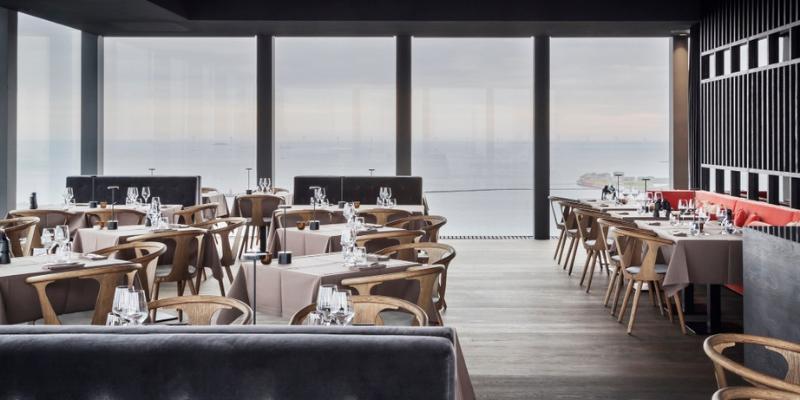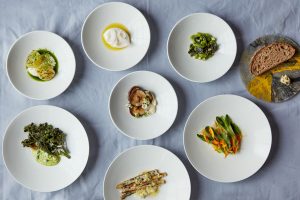


Silo began in Australia in 2011 with artist Joost Bakker who proposed the idea of “not having a bin”. From that point, Silo’s chef and owner has built the business up to being the world’s first zero waste restaurant.
Silo is a restaurant conceived from a desire to innovate the food industry whilst demonstrating respect: respect for the environment, respect for the way its food is generated and respect for the nourishment given to our bodies. This means Silo creates everything from its whole form, cutting out food miles and over-processing, whilst preserving nutrients and the integrity of the ingredients in the process.
It has its own flour mill that turns ancient varieties of wheat into flour the original way, opposing over-processed industrialised bread making techniques. It churns its own butter, makes its own oat milk, roll its own oats and support a nose to tail ideology, meaning that if an animal dies for food it will maximise the whole beast, respectfully. The on-site brewery creates natural fermented drinks from live cultures.

Silo furniture and fittings are created from a desire to re-use, choosing up-cycling before recycling. Its furniture is made from materials that would otherwise have been wasted, crafted with innovation to serve function. The plates are formed from plastic bags and tables from reconstituted food packaging. Lıghtshades are made from mycellium grown on used brewing grains and crockery are made from crushed wine bottles.

To achieve zero waste, all products delivered to the restaurant come in re-useable vessels such as: crates, pails, urns or containers. The minimal waste remaining is natural and therefore compostable; closing the loop.
Silo chooses to work like this to deliver delicious natural food, whilst demonstrating that sustainable food business is fınancially viable. That way, it can encourage the growth of other waste free businesses through collaboration, but also simply by demonstrating that it is possible and it works.
“We are the world’s first zero waste restaurant and aim to innovate the food industry whilst demonstrating respect: respect for the environment, respect for the way food is generated and respect for the nourishment we give to our bodies.”
— Douglas McMaster